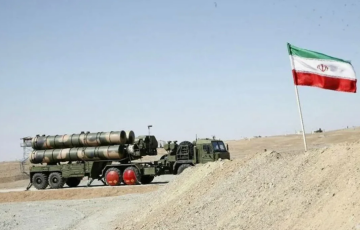The Telegraph: Iran's Rapid Air Defense Collapse Instills Fear In The Kremlin
- 19.06.2025, 11:27
- 7,804

Russia supplied Iran with air defense systems that proved powerless against Israeli attacks.
Successful strikes by Israeli forces on Iran are making more than just Iranian leader Ali Khamenei nervous. As The Telegraph writes, the rapid collapse of Iran's air defense systems - some of which were supplied by Russia - has Vladimir Putin's military chiefs seriously worried.
As the publication notes, no Israeli aircraft have so far been shot down in attacks on Iran, and the systems supplied to Iran by Russia, which include S-300 anti-aircraft missile systems and Rezonans-NE radar systems, appear to be powerless to stop the Israeli air force.
"For military analysts, this is yet another sign that Russia's air defense systems, long feared by the NATO alliance, may not be as formidable as they seemed," the article noted.
This has already been confirmed in Ukraine, when British Storm Shadow missiles successfully pounded hundreds of miles deep into Russian territory. The Ukrainians have also flown American F-16s in disputed territory that is covered by Russia's air defense network.
James Black of the Rand Europe Research Institute, says that in practice, "recent Israeli attacks on Iran - and previous strikes in October 2024 - have exposed the limitations of Iran's air defenses in the face of coordinated airstrikes by Western-made aircraft," including F-35s.
"This will add to the awkward questions that the Ukrainian strikes on Russia have already raised about the true strength of Russia's own integrated air defense system," Black said.
As former Army Commander Justin Crump points out, most NATO countries have long assumed that Russian air defenses were powerful enough to hold them off for weeks or months in the event of a conflict.
Now, however, that notion is crumbling. And in addition to being militarily worrisome, it could end up hurting Russian arms sales internationally - potentially in China's favor.
"If people look at the results and think that Russian technology hasn't lived up to expectations, I suspect a lot of countries may switch to what China can offer them," Crump adds.











